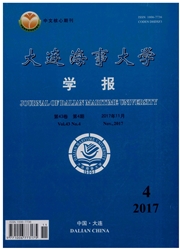

 中文摘要:
中文摘要:
为了评估抗生素对海洋沉积物氮素循环的影响,采用室内模拟实验研究了氟苯尼考存在下沉积物中氮素含量的变化.实验结果表明:氟苯尼考在低质量分数(1mg/kg和10mg/k)下对沉积物间隙水中NH4-N含量的影响不显著,只有在较高质量分数(100megk和500mg/k)下才出现显著的NH4-N积累.培养前期,添加氟苯尼考可导致沉积物间隙水中NO2-N含量迅速降低,而培养后期氟苯尼考又表现为刺激NO2-N含量增加.培养的第2天,沉积物间隙水中NO3-N的含量有短时间的积累;培养4d以后,高质量分数(500mg/kg)的氟苯尼考又表现为对硝化作用的抑制.同时,实验表明:高质量分数(100mg/kg和500mg/kg)的氟苯尼考可抑制沉积物的氧化还原电位的变化.
 英文摘要:
英文摘要:
The variation of nitrogen content with florfenicol in marine sediment was studied in laboratory by simulation experiment to estimate the influence of florfenicol on nitrogen cycling. The experimental results show that at low concentrations ( 1 mg/kg and 10 mg/kg), florfenicol does not affect the content of NH4- N in marine sediment pore water significantly, while high concentrations (100 mg/kg and 500 mg/kg) lead to ammonium accumulation. NO2-N in pore water decreases rapidly at the early days of the experiment with florfenicol, but accumulation occurs at the end. Temporary NO3-N accumulation occurs on the 2nd day. And the content of NO3-N in marine sediment pore water is lower than control sample with florfenicol at 500 mg/kg level after 4 days of incubation. Moreover, compared with control samples, the variations of oxidation-reduction potential in marine sediment are inhibited notablely by the high concentration ( 100 mg/kg and 500 mg/kg) of florfenicol.
 同期刊论文项目
同期刊论文项目
 同项目期刊论文
同项目期刊论文
 期刊信息
期刊信息
